Strictly On the Record
| Strictly On the Record |
| Christmas Suggestions: 2000 |
| Igor Kipnis |
| 29 December 2000 |
If classical record sales are still as much in the doldrums as they were last year at this time, and while the market continues to be inundated by a glut of new releases of all kinds, there are nevertheless a great many worthwhile discs over the last several months that are guaranteed to bring hours of pleasure to interested ears. The majors, of course, have largely ceased recording in the United States, especially orchestras, and have concentrated on reshuffling previously recorded material. What one finds, as never before, are crossover CDs, the aim being to sell at whatever cost. More standard, as well as often quite esoteric fare, is to be found in the wares of the small, independent companies, and the majority of these are imports, brought in by such distributors as Koch, Qualiton, and Harmonia Mundi. It is, at any rate, very much of a buyer’s market.
My own interests in collecting tend to be 19th- and 20th-Century instrumental and orchestral repertoire (this in spite of, or perhaps because of, my own 40-year career as a performer of earlier (i.e., pre-19th-Century) music, notably on harpsichord, clavichord, and fortepiano). That includes a very strong emphasis on historical recordings, now rendered so more sonically palatable than was ever technically possible before. Thus, among the recommendations below, favorites as well as other interesting discs that have come my way, I would hope that a few might wend their way into your own collections, even if it has to be a post-Santa purchase.
Perhaps THE pianist of the day, at least the one who has been getting the most attention, is the legendary Argentinean-born Martha Argerich, now not quite sixty and principally playing concertos with orchestras and participating in chamber music rather than giving solo recitals. An excellent sampling of her electrifying technique and superb musicality may be heard in live performances from Amsterdam’s Concertgebouw in 1978/1979, including works by Bach, Bartók, Chopin, Ginastera, Prokofiev, and a scintillating Scarlatti sonata encore (EMI Classics 56975. A splendid Mozart 25th Concerto with Szymon Goldberg and the Netherlands Chamber Orchestra in 1978, coupled with Heinz Wallberg conducting the Concertgebouw in 1992 in Beethoven’s 1st Concerto (EMI Classics 56974) is equally recommendable, as is a set of 1978/9 concertos by Tchaikovsky and Schumann with Kazimierz Kord and the Warsaw Philharmonic. coupled with a handful of encores (Accord 011 305-2).
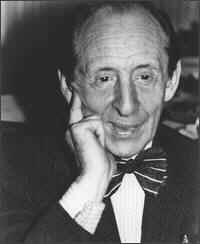 Argerich’s name if often linked to that of Vladimir Horowitz, and there are a few recent reissues of his that bear attention: A BMG 2-CD reissue entitled “The Indispensable” (74321 63471-2) contains mostly shorter selections from sessions and live performances dating from 1945-82, works by Chopin, Scarlatti, Rachmaninoff, Moszkowski, Scriabin, Liszt, Liszt-Horowitz, Bizet-Horowitz, Sousa-Horowitz The sound is considerably improved over previous reissues of this material. All indeed are indispensable, although in some cases earlier recordings of the same selections might be preferred. The same could be said of Horowitz’s Rachmaninoff Third Concerto of 1978 with Ormandy and the New York Philharmonic (coupled with the equally “live” Second Sonata of 1980) which though far better recorded and, as here, remastered with 24/96 technology (BMG 09026 63681-2) still takes a far second or third place to the pianist’s early 1950’s mono recording with Reiner (RCA Victor Gold Seal 7754). For the Horowitz collector who also reveres Rubinstein, a sometime rival, there is a fascinating CD of the Tchaikovsky Concerto No. 1 with live performances back-to-back, so to speak, of each by the two titans: an incredibly electrifying Horowitz in 1953 with George Szell (a long-time favorite off-the-air performance of mine) and Rubinstein with the same orchestra and Artur Rodzinski in 1946, more leisurely but also very satisfying musically (Palexa CD-0511).
Argerich’s name if often linked to that of Vladimir Horowitz, and there are a few recent reissues of his that bear attention: A BMG 2-CD reissue entitled “The Indispensable” (74321 63471-2) contains mostly shorter selections from sessions and live performances dating from 1945-82, works by Chopin, Scarlatti, Rachmaninoff, Moszkowski, Scriabin, Liszt, Liszt-Horowitz, Bizet-Horowitz, Sousa-Horowitz The sound is considerably improved over previous reissues of this material. All indeed are indispensable, although in some cases earlier recordings of the same selections might be preferred. The same could be said of Horowitz’s Rachmaninoff Third Concerto of 1978 with Ormandy and the New York Philharmonic (coupled with the equally “live” Second Sonata of 1980) which though far better recorded and, as here, remastered with 24/96 technology (BMG 09026 63681-2) still takes a far second or third place to the pianist’s early 1950’s mono recording with Reiner (RCA Victor Gold Seal 7754). For the Horowitz collector who also reveres Rubinstein, a sometime rival, there is a fascinating CD of the Tchaikovsky Concerto No. 1 with live performances back-to-back, so to speak, of each by the two titans: an incredibly electrifying Horowitz in 1953 with George Szell (a long-time favorite off-the-air performance of mine) and Rubinstein with the same orchestra and Artur Rodzinski in 1946, more leisurely but also very satisfying musically (Palexa CD-0511).
The increasingly popular Russian pianist, Arcadi Volodos, has also recorded the Rachmaninoff Third Concerto live with James Levine and the Berlin Philharmonic (Sony SK 64384), filling the CD out with a variety of that composer’s solo pieces. The latter come off very well, though I find Volodos, in spite of his extraordinary virtuosity (he makes child’s’ play out of the longer and more difficult first movement cadenza, for example) strangely unfulfilling emotionally. I’ll take Horowitz/Reiner or Argerich any day. A name to watch out for is that of London-born (1977) Freddy Kempf, who follows up his very first solo CD of Schumann, a good start, with an smashing all-Rachmaninoff disc (BIS CD-1042) that includes the Second Sonata and the twelve Op. 39 Études-tableaux. Along with the young pianist’s volatile temperament, one also hears a welcome poetic streak.
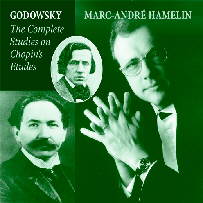 Speaking of technique and poetic disposition, the Canadian pianist, Marc-André Hamelin, who appears to be recording the most difficult and often obscure repertoire and all of it brilliantly, has a two-CD set of the complete Leopold Godowsky Studies on Chopin’s Etudes, one hundred and fifty-three minutes’ worth of some of the most finger-twisting repertoire one can encounter. Godowsky adds a gloss to Chopin, sometimes reversing the right- and left-hand parts, making left-hand etudes out of some two-hand works, and even combining several of Chopin’s originals in one new etude. This is without question staggering playing, but it is also exceptionally musical in content and not just exploitative (Hyperion CDA 67411/2).
Speaking of technique and poetic disposition, the Canadian pianist, Marc-André Hamelin, who appears to be recording the most difficult and often obscure repertoire and all of it brilliantly, has a two-CD set of the complete Leopold Godowsky Studies on Chopin’s Etudes, one hundred and fifty-three minutes’ worth of some of the most finger-twisting repertoire one can encounter. Godowsky adds a gloss to Chopin, sometimes reversing the right- and left-hand parts, making left-hand etudes out of some two-hand works, and even combining several of Chopin’s originals in one new etude. This is without question staggering playing, but it is also exceptionally musical in content and not just exploitative (Hyperion CDA 67411/2).
The late pianist, Paul Jacobs, whose fine Debussy performances are available on Nonesuch, recorded much other material between 1976-79 for that label, including music by Stravinsky, Bartók, and Messiaen, but his most valuable contribution may have been the works by Busoni: six Polyphonic Studies, the six Sonatinas, and the various arrangements of chorale preludes by Bach and Brahms. The reproduction on Arbiter (124) is exceptionally good. Another pianistic reissue of note is that devoted to 1946-48 recordings by the late British performer who went by only his first name, Solomon (the last name was Cutner). I was fortunate enough to have heard him in my youth and avidly collected all his recordings. Pearl (GEM 0038) has reissued two of his important earlier Beethoven performances, Op. 2, No. 3, and Op. 111, adding to them shorter works by Scarlatti and Haydn (Sonata No. 50 in D). He was a major pianist, and I urge you to acquire this along with his other reissued discs on APR and Testament.
Fine, contemporary recordings of Mozart Concertos Nos. 23 in A Major and 24 in C Minor, respectively K. 488 and 491, are available from the admirable Richard Goode with the conductorless Orpheus Chamber Orchestra (Nonesuch 79489-2), all classically conceived with particularly affecting slow movements. The Mozart Two-Piano Concerto, K. 365 and the Piano Concerto No. 27 in B Flat, K. 595. Are scintillatingly and warmly performed by Clifford Curzon with Daniel Barenboim conducting both works and also participating as pianist in K. 365. Curzon with Benjamin Britten add to the value of the disc with a superb Sonata in D for two pianos, K. 488, (BBC BBCL 4037-2), all live from 1960 (the Sonata) and 1979 (the Concertos).
Urania has issued a first: the Bartók Third Piano Concerto with the great Dinu Lipatti, recorded in Baden-Baden in 1948 and long thought unattainable because of conductor Paul Sacher’s unwillingness to have his live performance with the Southwest Radio Orchestra released. (URN 22.122). Granted the orchestral contribution is decidedly unexceptional, nor the sound anything more than dim, but the historical value is of the principal importance here for Lipatti collectors. The CD also contains a live Geneva based Liszt First Concerto with Ernest Ansermet from 1947 (previously released on ARC 112/3), plus Lipatti’s long commercially available and often reissued Grieg Concerto of 1947 with Alceo Galliera and the Philharmonia Orchestra. That Grieg performance, in spite of not up-to-date-sonics, is considered a benchmark recording by many collectors.
Although a few years old by now (it was reissued in 1997 as Vanguard Classics OVC 8205), Percy Grainger’s live Grieg Concerto, made in 1957 four year’s before that pianist’s death, was part of a concert in Aarhus, Demark, in which Grainger also played his “Ramble of Love” (a paraphrase on Strauss’s Rosenkavalier), his Suite on Danish Folk Songs, and, as an incredibly vivacious encore, his ubiquitous Country Gardens. The original LP was about to be released but was withdrawn, because various critics (including the redoubtable Harold Schonberg) felt that, because of the many keyboard errors, including a memory slip, the issuance of the LP would be considered a disservice to the reputation of one of the pianistic giants of the 20th Century. It turned out that over the next few years surreptitious copies had been dispersed, and collectors were even paying as high as $1000 for that single LP. Grit your teeth at the flagrant errors if you must, but be aware that, even with this second- or third-rate accompaniment by the Aarhus Municipal Orchestra under Per Drier’s direction, this is really a great soul-stirring, incredibly turned-on rendition of the popular Grieg Concerto.
Joe Utterback, who was born in Kansas in1944, is one of America’s most distinguished jazz pianists. His style is incredibly varied, and his compositions, originals as well as arrangements (such as his 1997 concert fantasy on “Porgy and Bess”) are sophisticated and endlessly inventive, owing much to such important predecessors as Art Tatum, Oscar Peterson, Errol Garner, and Bill Evans. Sixty-six minutes, 24 pieces, of Utterback have been brilliantly recorded by David Allen Wehr (Connoisseur Society CD 4228), who revels in the lively rhythms of his materials. It is a delightful disc, and, as anybody who knows Connoisseur Society is aware, the piano sound is super.
Two more piano discs may be of interest: an Austin, Texas, company, Pierian, has issued two CDs of historic piano-roll recordings from the Kenneth Caswell Collection. All of Debussy’s late-1912/1913 Welte-Mignon rolls have been gathered together (Pierian 0001) as well as those of Enrique Granados (Pierian 0002). Considerable care has been taken to avoid the hazards and question marks that surrounded so many previous piano-roll recreations, such as mechanical problems with the reproducing mechanism, damaged and unreliable rolls, and, not least, correct speed. The Granados in fact even includes a Granados-arranged Scarlatti sonata heard in both the Welte roll rendition and on a 1913 Odeon acoustic disc. The comparison is most convincing in an area where negative assessments of piano-roll accuracy tend to outweigh the positive ones. The medium of resurrected piano rolls, in spite of the accolades of so many of the piano and composer participants of those earlier years, still raises doubts among present-day hearers in so many cases, but the Pierian CDs are very impressive indeed.
Among other instrumental recordings, the high-powered contribution of Jascha Heifetz in 1945 with the New York Philharmonic conducted by Artur Rodzinski, performing the Beethoven Violin Concerto live makes for a staggering listening experience, one that possibly ranks even higher than the commercial RCA Victor recordings of the concerto the violinist made, respectively, with Toscanini and Charles Munch. The disc (Vol. 5 of the Jascha Heifetz Collection on Doremi DHR-7727) is filled out with a remarkable rarity, but one that in the event, proves a bit disappointing: the first release of six of the violinists’ first recordings, made in Russia in 1911, when he was only ten. These essentially encore pieces by Auer, Drdla, Kreisler (Caprice Viennois), Francois Schubert, and Dvorak (Humoresque) are of course dimly reproduced but, aside from the obvious talent one hears, they present nothing very special, at least in comparison with Heifetz’s earliest Victor acoustics of 1917.
As an enthusiast of the late Sir John Barbirolli, I am gratified to see so many of the British conductor’s older recordings, as well as his broadcast performances, being released. One originally commercial issue of note is the Dutton Laboratories‘ two-CD set of Sir John’s Elgar recordings of 1947-57 with the Hallé Orchestra now issued for the Barbirolli Society (CDSJB 1017). Half mono (HMV/EMI), half stereo (Pye Records), the collection includes, among others works, the first Symphony, Introduction and Allegro, and Enigma Variations. The glowing, expressive interpretations speak for themselves. BBC Music just released Barbirolli’s “A Viennese evening at the Proms” with the Hallé from 1969 and the Royal Albert Hall (BBCL 4038-2): Haydn’s Symphony No. 83 (“The Hen”), four Johann Strauss II selections, a terrific Rosenkavalier Suite of Richard Strauss, and, in conclusion, Lehar’s “Gold and Silver” Waltz. All are given the characteristic Barbirolli treatment, with warmth and rhythmic vivaciousness paramount.
In the operatic area (yes, I do listen to opera, but readers should not forget that my father, Alexander Kipnis, was a singer – I am, incidentally, involved with my coauthor, Barry Lenson, in writing his biography for Amadeus Press), there are two newly issued Traviatas. The 2000 soundtrack of “Traviata á Paris,” conducted by Zubin Mehta with the RAI Symphony Orchestra and Eteri Gvazava as a buxom-sounding Violetta, José Cura as a stentorian Alfredo, and Rolando Panerai as a rather blustery Germont, is a sound treat (two CDs, Teldec 8573-82741-2). Without for a moment forgetting the earlier Franco Zeffirelli production with Teresa Stratas as the most affecting Violetta imaginable, one looks forward to seeing to what promises to be director Giuseppe Patroni Griffi’s colorful film The singing is nowhere less than good, and the conducting, though brilliant, is not especially subtle nor even moving (I find it hard to forget the1946 broadcast version by Toscanini on RCA Victor). Ah, but that Teldec sound!
Quite another sound picture comes from the Milan studio-made 1930 recording, the first electrically made set of the complete Traviata by Carlo Sabajno and the La Scala forces (two CDs, Opera d’Oro OPD-9002), with Anna Rozsa as Violetta, Alessandro Ziliani as Alfredo, and Luigi Borgonovi as Germont. This historical recording, previously issued on VAI 1108, has dry and limited sound and minimal atmospheric. If none of the La Scala house singers consistently compare with those on the top-level vocal parthenon, the performance does have an idiomatic flavor that is hard to resist. The vocal collector will find much of stylistic interest here, even though another historical La Scala recording from 1928 under Lorenzo Molajoli vies for equal attention.
The late Leonard Warren (1911-1960), the much admired Metropolitan Opera baritone of the 1940s-1950s has greatly benefited from an important and belated reissue on two beautifully documented CDs issued in conjunction with a comprehensive and extravagantly illustrated biography of the singer by Mary Jane Phillips-Matz. The discs are even divided between opera arias and concert songs, and the carefully remastered recordings date from between 1941-1958. Both, as well as the book, may be obtained from the Leonard Warren Foundation, 100 Sugar Creek Road, Alama, CA 94507; fax: 925-855-1555 or from the distributor, VAI (800-477-7146.
 Finally, if you’re seeking a handsome and immensely worthwhile present for yourself or another delighted recipient, I cannot recommend anything more highly than the $195, 10-CD compilation issued by the New York Philharmonic, “Bernstein Live,” which contains thirteen hours of never-before-released concerts dating from 1951-1981. The two copiously illustrated accompanying booklets are worth the price alone, but the performances themselves, which range from Bach to well into the 20th Century, are what makes this beautifully prepared package so special. May I mention a few out of many of my own favorites? Try Beethoven’s Triple Concerto, the premier of Ives’s Second Symphony, Schumann’s Cello Concerto with Jacqueline du Pre, Byron Janis in Mozart’s Concerto No. 23, and Rachmaninoff’s third Concerto with Lazar Berman. The set may be obtained from specially selected Tower stores, as well as directly from the New York Philharmonic (1-800-557-8268, US and Canada; online atwww.newyorkphilharmonic.org).
Finally, if you’re seeking a handsome and immensely worthwhile present for yourself or another delighted recipient, I cannot recommend anything more highly than the $195, 10-CD compilation issued by the New York Philharmonic, “Bernstein Live,” which contains thirteen hours of never-before-released concerts dating from 1951-1981. The two copiously illustrated accompanying booklets are worth the price alone, but the performances themselves, which range from Bach to well into the 20th Century, are what makes this beautifully prepared package so special. May I mention a few out of many of my own favorites? Try Beethoven’s Triple Concerto, the premier of Ives’s Second Symphony, Schumann’s Cello Concerto with Jacqueline du Pre, Byron Janis in Mozart’s Concerto No. 23, and Rachmaninoff’s third Concerto with Lazar Berman. The set may be obtained from specially selected Tower stores, as well as directly from the New York Philharmonic (1-800-557-8268, US and Canada; online atwww.newyorkphilharmonic.org).
IGOR KIPNIS’s most recent recordings include the complete Bach Harpsichord Partitas on two Angel/Seraphim CDs (Nos. 1, 2 & 4 on 73700, Nos. 3, 5, & 6 on 74007) and with his duo-piano partner, Karen Kushner, “Four Hands,” music for one piano, four hands, by Brahms, Schubert. Ravel, Gershwin, and others (Parnassus PACD 96030). His recordings of the complete Bach Fantasias on harpsichord and clavichord has also been reissued on Arabesque Z-6577
His web site is on: http://people.mags.net/kipnis
![]()
Don’t forget to bookmark us! (CTRL-D)
Stereo Times Masthead
Publisher/Founder
Clement Perry
Editor
Dave Thomas
Senior Editors
Frank Alles, Mike Girardi, Key Kim, Russell Lichter, Terry London, Moreno Mitchell, Paul Szabady, Bill Wells, Mike Wright, Stephen Yan, and Rob Dockery
Current Contributors
David Abramson, Tim Barrall, Dave Allison, Ron Cook, Lewis Dardick, Dan Secula, Don Shaulis, Greg Simmons, Eric Teh, Greg Voth, Richard Willie, Ed Van Winkle, and Rob Dockery
Music Reviewers:
Carlos Sanchez, John Jonczyk, John Sprung and Russell Lichter
Site Management Clement Perry
Ad Designer: Martin Perry


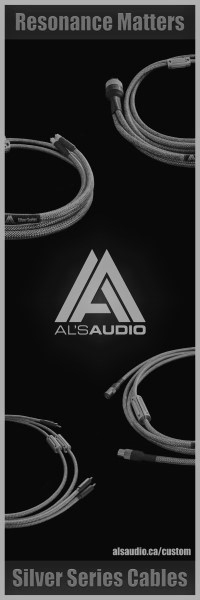
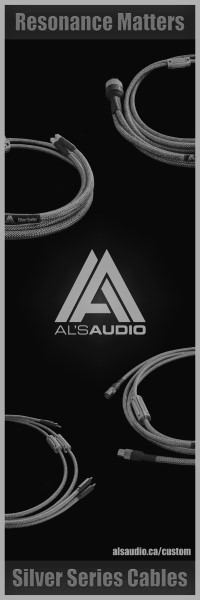
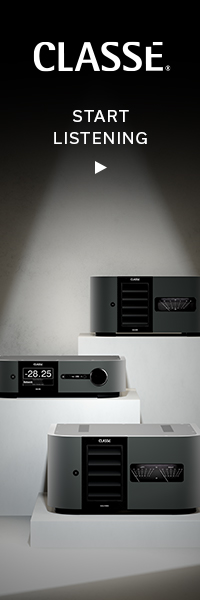
Be the first to comment on: Strictly On the Record